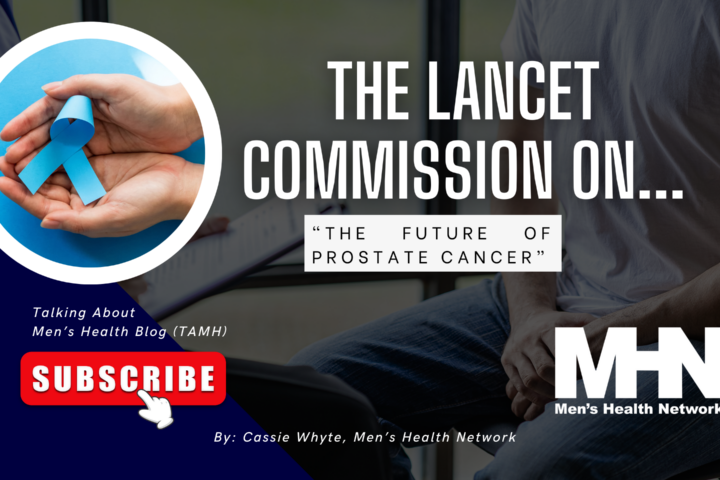Editor’s note: This post is part 2 in a 3 part series on the Mother-Son dynamic. Click here for the other posts in the series.
For the ordinary man is passive. . . . So far from endeavoring to influence the future, he simply lies down and lets things happen to him.
—George Orwell
Passivity can stop men and women from moving forward in recognizing and doing the work to break the unhealthy Mother – Son Dynamic in their lives. Passivity is caused by many things. Overdependency on the mother or being overly depended upon by her or others is a major contributor. Passivity has been one of the least studied, discussed, and explained aspects of human behavior. The fields of psychology, personal growth, and recovery have completely ignored it. Understanding passivity as it relates to the Mother-Son Dynamic is essential to enhancing emotional intelligence, creating healthy relationships, increasing self-esteem, and healing the bodies, minds, and spirits of individuals who are hurting or hurting others. Passivity especially occurs in men who were smothered as little boys. This boy becomes, to use to a much outdated term, a “gigolo,” a “kept man.” As an adult, he demands that women do for him like his mother did. Passive men are half in and half out of relationships. The passive man or woman is more attached to not having what they think they want or desire, even though they protest loudly that this is not so. Passivity is the compulsion to pursue the opposite of what we say we want (see more on this in my book The Half Lived Life: Overcoming Passivity and Rediscovering Your Authentic Self).
 Passivity is difficult to identify because one of the greatest tricks a passive man plays on himself goes something like this: “Look how hard I work. I work eighty hours a week and am the CEO of a large company. How can anyone label me as passive?” or “Look how much I work on myself. I go to five twelve-step meetings a week and see my therapist regularly; how can I be passive?” “Can’t you see I’m suffering? Isn’t that proof that I’m not attached to passivity?”
Passivity is difficult to identify because one of the greatest tricks a passive man plays on himself goes something like this: “Look how hard I work. I work eighty hours a week and am the CEO of a large company. How can anyone label me as passive?” or “Look how much I work on myself. I go to five twelve-step meetings a week and see my therapist regularly; how can I be passive?” “Can’t you see I’m suffering? Isn’t that proof that I’m not attached to passivity?”
One of the greatest tricks I played on myself and Grace is “Look at how busy I am; who would ever identify me as being passive?” I was most passive in the areas of work and money. I used an extreme amount of work to keep me from engaging Grace emotionally at the level I might have been forced to do if I hadn’t been gone from home 200 days a year. I was almost equally passive regarding my finances. I never really monitored them carefully, and I didn’t know what my expenses were because my assistant would take care of those. I didn’t even know if I had enough money to buy the farm in Asheville. Grace, who was very money conscious regarding saving and paying off bills, wanted to pull her hair out (or pull my hair out!) because of my passivity toward money.
One of the main symptoms of passivity is being out of balance in our personal and professional lives. Many reading this were thrown off balance even as babies when our wounded mothers looked in our eyes for comfort and relief. The passive person’s creed is, “I’m feeling overwhelmed,” or feel that too many people need them or that they themselves are too needy. They think the world acts on them and moves them rather than being actors and movers themselves. It is important to note that passivity causes you to react rather than act, control rather than respond, manipulate rather than make, or self-destruct instead of create. The passivity I am discussing is not to be confused with passive-aggressive behaviors: timidity, shyness, apathy, or laziness. It is also not to be misconstrued as surrendering or letting go, “turning it over,” or practicing passive resistance. All of these are very active processes that actually energize the ones doing so. The passivity discussed here is more akin to giving up, feeling hopeless, feeling defeated, settling for, or feeling unsatisfied. The man who is over-attached to his mother may feel all of these, and he may have witnessed great degrees of passivity in his mother/father. Remember, children don’t take after strangers.
Moving Past Passivity
By working with your tendencies to be passive, especially in relationships, you are taking the first critical step to take your life to the next level, a level that is more emotionally rewarding and satisfying. Unfortunately, many people have developed a greater connection to loss and feeling less than; they settle for unfulfilling relationships or careers that never quite allow them to achieve their creative potentials. Surviving rather than thriving has become the state that many are not only used to but are also compelled to pursue. It is this nonengaging that lets life pass you by because you did not have the information and tools to take action to change things for the better. You now have the information and tools. Passivity is a learned behavior, a reaction to life that can be unlearned. Passivity is an offense of omission—not doing or saying what you need to, not responding, not accepting challenges, and refusing to take risks—rather than of commission, and that is one reason it has been overlooked by clinicians and writers.
Passivity compels people to wait in a state of suspended animation until something or some mother-like someone “rescues” them from their current circumstances. This knight in shining armor (whether a person, the world, society, or a supernatural being) is supposed to bring the passive person something he feels he has lost or had taken from him. That something could be hope, energy, love, trust, faith, the perfect job, an unconditional lover, the winning lottery numbers, or the good parent he never had, once had, or wished he had. It is a psychological, physical, emotional, and spiritual condition that plagues even the most educated and self-directed people; therefore, the whole person must be addressed. Once it is, you can move from passivity to pursuing your life passions and your relationships rather than seeking your mother’s approval or validation.




I enjoyed this article. I think the notion of passivity is something that does not get addressed very often, and is really a useful concept that men everywhere should consider. Am I a passive person, and how is my passiveness affecting my life and relationships? I think its important to note that passivity can stem from, or lead to, other issues, such as having depression, not feeling satisfied, or experiencing hopelessness. I think that this is truly an issue that all men–and women–should take time to seriously confront.
I thought this was very interesting and informative piece to read. Trying to grasp the concept of passivity and understanding the differences being passive-aggressive or passive ways. Like you had mentioned, it’s something we never really talk about because it’s a daily thing people live with. I can’t wait to read the third part of the series.